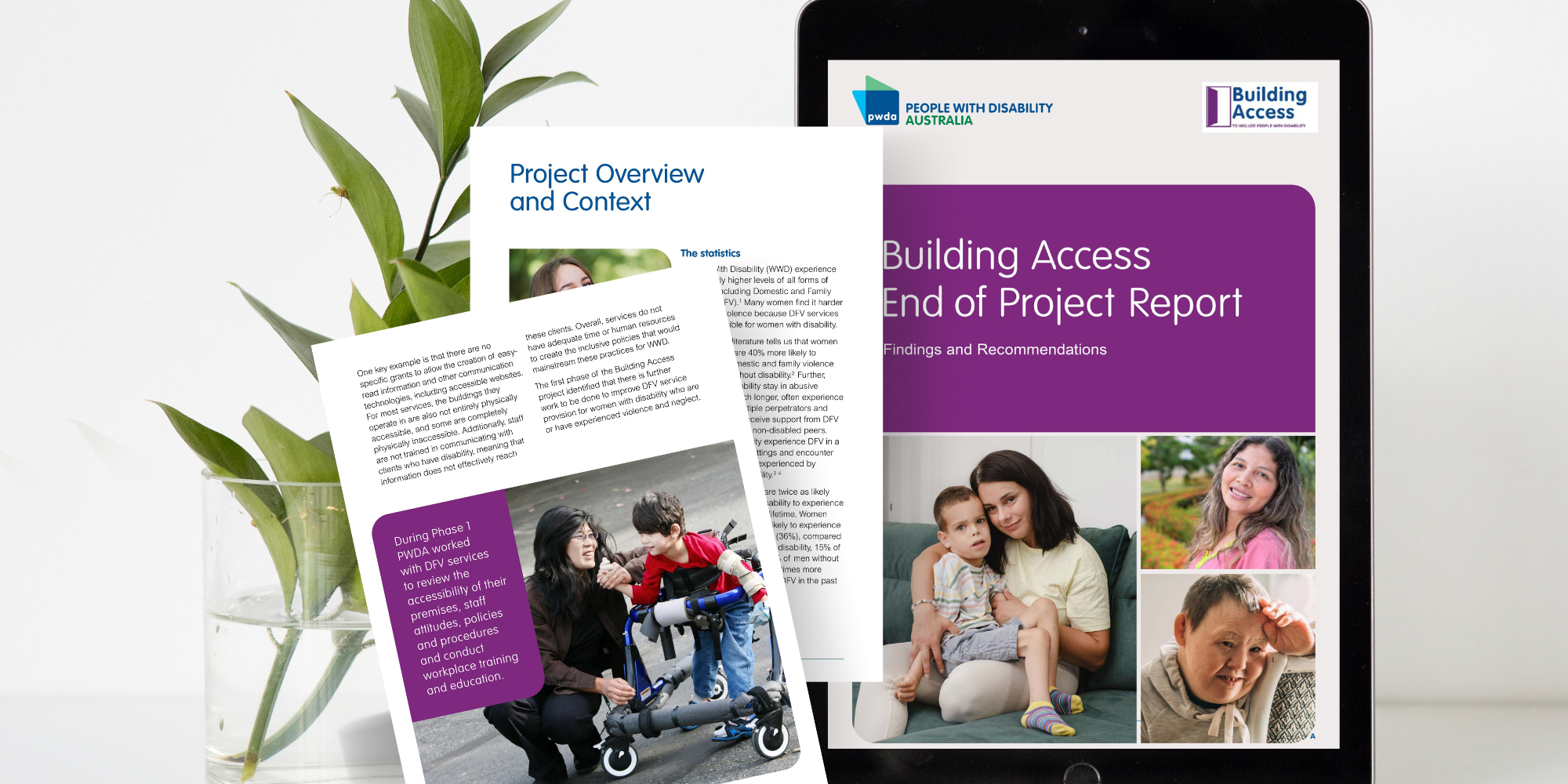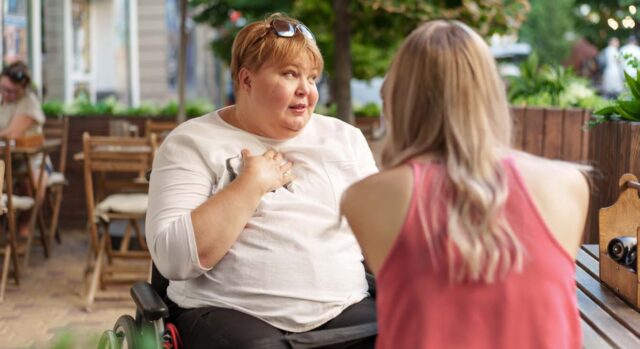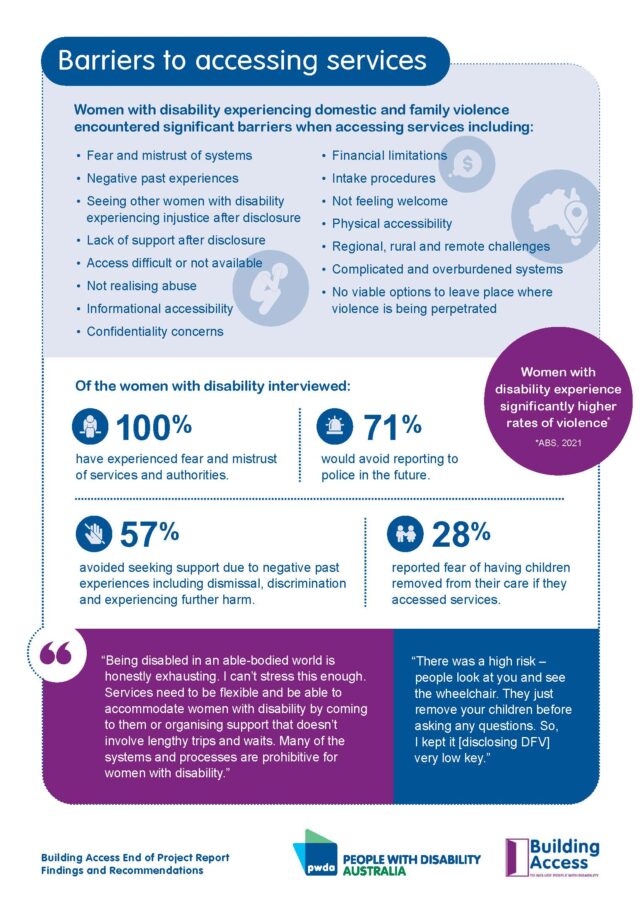

The Building Access project, managed by PWDA, is an innovative initiative enabling domestic and family violence (DFV) services to better meet the needs of women and children with disability. The project is not only unique in addressing and increasing the accessibility of DFV services across NSW but is also of national significance.
The Building Access Project seeks not only to improve the accessibility of frontline
DFV services but also to advance the fundamental human rights of women with disability (WWD).
The two phases of the Building Access Project have now concluded and PWDA has released the Building Access End Of Project Report.

The key findings of the report revealed that of the women with disability interviewed:
- 100 per cent have experienced fear and mistrust of services and authorities.
- 71 per cent would avoid reporting incidents of DFSV to police in the future.
- 57 per cent avoided seeking support due to negative past experiences including dismissal, discrimination and experiencing further harm.
- 28 per cent reported fear of having children removed from their care if they accessed services.
The report clearly indicates that inclusive policies and practices produce better outcomes for WWD, both as staff and clients, of DFV services. These policies and practices, along with accessibility audits and disability awareness training create an environment of attitudinal accessibility. This means notable and meaningful organisational change with accessibility integrated into their organisational structure, planning and delivery, and WWD experiencing violence getting the support they need.
The research involved in-depth interviews with women and non-binary people who have lived experience of disability and domestic, family and sexual violence (DFSV). Service providers engaged in the Building Access Project were also interviewed and the wider DFSV sector surveyed as part of the research.
PWDA is calling for additional funding for the Building Access Project to ensure its national rollout in response to the report.
